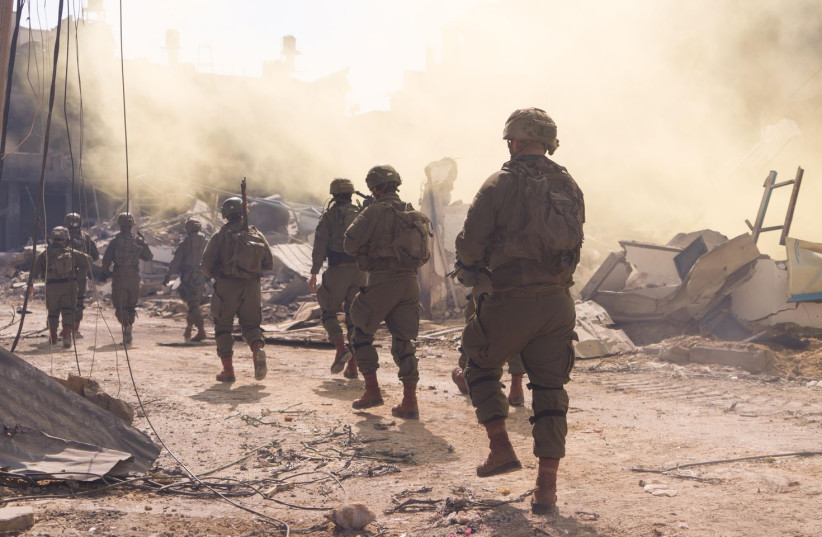Major Ori Getter, a company commander in 932 battalion, and his wife Or couldn’t settle on a baby name for their yet unborn son – until October 7, when Ori’s close friend, Major Roey Chapell, was killed in battle.
“Ori told me Roey had been killed, and that night I dreamed that we named our baby Elroey after him,” explained Or. She texted her husband as soon as she woke up, telling him about her dream. “He responded, ‘That’s the name [for our baby].”
Ori met Roey by chance, when they were both company commanders of different companies on the same base. They connected early on and, together with two other officers, formed a group of friends that also included their significant others, said Ori. They stayed in touch even after their roles in the IDF separated them.
“It was clear to me that Roey was a special person,” said Ori. “He had a huge heart; he accepted everyone and always wanted to help them. He always had time to listen to his friends and fellow officers and to his soldiers. He believed in others and saw the best in them.
“He never gave up on any of his soldiers, even when the other officers wanted to,” said Ori, adding that he hopes that these traits will be passed on to others, including his son Elroey, who is now a month and a half old.

Ori spent the last months of the war leading his troops on various raids and missions in Gaza. “We have been all over the north of the Gaza Strip, from the fence to the sea,” he said. His battalion has eliminated hundreds of Hamas terrorists and recovered weaponry and important intelligence, according to the IDF.
'One of the best'
In their last raid, they found a large amount of Hamas weaponry as well as a camera with intelligence on how Hamas fighters operate in the area and how they use anti-tank missiles, the IDF said.
One of Ori’s soldiers, St.-Sgt. Avraham Wovagen, was killed in the mission. “He was one of the best soldiers in the company,” said Ori. “He was always a leader. He was standing where he was hit and killed because he volunteered to go out front and lead.”
It was challenging for Ori not to be more present for his wife during her pregnancy. “I had mixed feelings,” explained Ori, saying that while it was hard not to be there for her, “maybe it was clear that it was the right thing to do, that it was worth it, that I had to put aside my family’s needs because the country needed me.
“I live with the understanding that my company is part of my family. The soldiers feel like my cousins. When Elroey was born, I told them another boy had joined the family and we have grown, and he is part of us,” added Ori.
Even before the war, because of Ori’s important role in the IDF, Or anticipated experiencing a great deal of her pregnancy alone. “It was harder and more emotional because of the situation,” Or said, “but I would have gone through most of it alone anyway. I always knew he might miss the birth.
“The choice to be part of the army is a choice that we both made,” she added. “His job is the war, and my job is at home, keeping the worries of running the household from him to make things easier and keep him from being distracted.”
Ori was in Gaza, in the midst of a mission, when his wife went into labor. He found out that his son was being born via text message, he recounted.
“When my water broke, I wasn’t sure if I should text him yet,” said Or, adding that she was worried it could distract him. “When I realized the labor was really advanced, I called around, trying to reach him.”
Or wasn’t able to reach Ori to speak with him before the birth; he received the text that she was in labor only later.
He initially told Or that his team was involved in an important mission and he would likely make it only to the (circumcision), but that night, it was decided that his company would be allowed to leave Gaza for a short break.
“He showed up by surprise at the hospital at midnight,” said Or. “It was probably the first time that I cried.
“As much as I prepared for the idea that this child is here and he hasn’t seen his father, it was still hard, but then Ori got to see him. We stayed awake talking all night, and in the morning, he went back to the army.”
